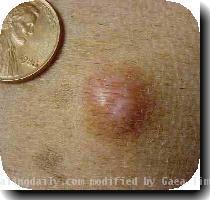Different groups sometimes come up with different advice on cancer screening
By APFriday, November 20, 2009
Guidelines for cancer screening differ by group
Several doctors groups and advocacy groups set guidelines for cancer screening, and they update that advice periodically as new information emerges. Sometimes they agree, sometimes they don’t. Last year, a number of groups got together and issued consensus guidelines for colon cancer.
The U.S. Preventive Services Task Force, a government-appointed, independent panel of doctors and scientists, also makes recommendations looked to by doctors groups, insurers and policy makers.
The latest advice from the major medical groups for routine screening — primarily for people who don’t have a family history of a particular cancer or other risk factors:
Breast cancer:
— American Cancer Society: Mammograms yearly beginning at age 40; breast exam by doctor at least every three years in 20s and 30s, annually after 40; breast self-exam an option.
— American College of Obstetricians and Gynecologists: Mammograms every 1-2 years for women in their 40s; annual mammograms age 50 and older; breast exam by a doctor annually from age 19; breast self-exam can be recommended.
— U.S. Preventive Services Task Force: Mammograms every two years for women ages 50 to 74, after 75 the risks and benefits unknown; recommends against self-exam; value of exams by doctors unknown.
Cervical cancer:
— Cancer Society: Start Pap tests about three years after first intercourse but no later than 21; annually or every 2-3 years for women over 30 who have three normal tests; stop at 70 after at least three negative tests and no abnormal tests in last 10 years; discontinue after a total hysterectomy.
— ACOG: Start Pap tests at age 21 and then every two years; 30 years and older, every three years after three normal tests; reasonable to stop at age 65 or 70; discontinue after hysterectomy.
— Task Force: Start Pap tests within three years of sexual activity or by age 21; at least every three years, stop after 65 if negative tests and no high risk; discontinue after hysterectomy.
Prostate cancer:
— Cancer Society: No routine testing recommended; doctors should discuss benefits and limitations, and offer screening — a physical exam and blood test for a substance called PSA — to men beginning at age 50, with at least a 10-year life expectancy.
— Task Force: No recommendation for or against screening for men under 75; men over 75 should not be screened.
— American Urological Association: Men 40 and older should be offered a baseline PSA test and exam.
Colon cancer:
— Cancer Society and other major groups: Start screening at 50 with one of these tests: colonoscopy every 10 years; a sigmoidoscopy of the lower colon every five years; CT colonography or “virtual colonoscopy” every five years; barium enema every five years, stool blood test annually; stool DNA test, no interval given.
— Task force: Screen from age 50 to 75 with one of three tests: colonoscopy every 10 years; a sigmoidoscopy every five years, combined with a stool blood test every three years; a stool blood test every year.
On the Net:
Task Force: www.ahrq.gov/CLINIC/uspstfix.htm
Cancer Society: tinyurl.com/screening-guidelines

